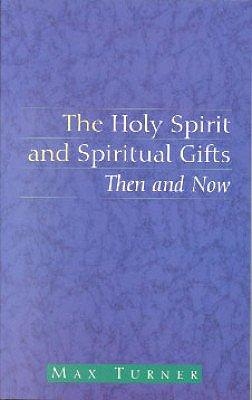Studies in Pentecostal and Charismatic Issues
1 total work
Questions regarding the role of the Holy Spirit and spiritual gifts in the life of the believer and the church today continue to be asked. Professor Max Turner suggests that the place to begin answering such questions is the New Testament. What do the writers of the New Testament say about the work of the Holy Spirit, and how can we understand spiritual gifts for today? Turner looks carefully at the gospels of Luke and John and the writings of Paul and explores how they took over and developed Old Testament and Intertestamental notions of the Spirit. Then he asks how looking at ancient witnesses informs our contemporary understanding. A comprehensive 400 page study that looks at issues such as prophecy, healing, tongues, and a Trinitarian Pneumatology in which Turner moves from the horizon of the original text with balance to the contemporary context.
"The author intends to provide a middle way between Pentecostal theology and more traditional forms of Christianity. Readers from both sides will have to decide how much of this ideal Turner has actually achieved. From the perspective of more conservative theology, the book offers little interaction with sources outside of the Pentecostal/ charismatic and Evangelical traditions. From the Pentecostal perspective, the book hardly interacts with the experiential approach of a Pentecostal theology to spiritual gifts. To both sides, the book should therefore be perceived as an invitation to combine the wisdom and insights of the different traditions for a more inclusive and ecumenical perspective in the future. In this sense, The Holy Spirit and Spiritual Gifts has opened the doors to further dialogue and interactions not only on the formal academic level but also among pastors, church leaders, and others who seek to maintain the unity of the Spirit."
-Pneuma Review
"The author intends to provide a middle way between Pentecostal theology and more traditional forms of Christianity. Readers from both sides will have to decide how much of this ideal Turner has actually achieved. From the perspective of more conservative theology, the book offers little interaction with sources outside of the Pentecostal/ charismatic and Evangelical traditions. From the Pentecostal perspective, the book hardly interacts with the experiential approach of a Pentecostal theology to spiritual gifts. To both sides, the book should therefore be perceived as an invitation to combine the wisdom and insights of the different traditions for a more inclusive and ecumenical perspective in the future. In this sense, The Holy Spirit and Spiritual Gifts has opened the doors to further dialogue and interactions not only on the formal academic level but also among pastors, church leaders, and others who seek to maintain the unity of the Spirit."
-Pneuma Review
